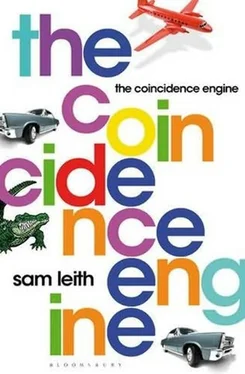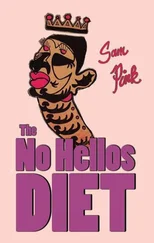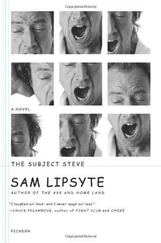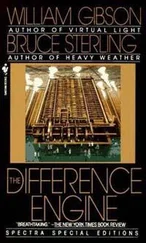‘I doubt it,’ said Bree.
‘Believe,’ said Red Queen.
‘The boy knew nothing,’ Bree said again. ‘But that ring -’
‘ “AB” could be anyone,’ said Red Queen. Then, after another longish pause and an exhalation of breath: ‘I think you’re right. For what it’s worth, and with no evidence at hand, I think you’re right. But there. It’s gone now.’
‘It killed people,’ said Bree, ‘if I’m right.’
‘Uh-huh. It did. It killed Jones.’ The pause hung there on the line between them. ‘You liked him, didn’t you?’ Red Queen sounded almost solicitous.
‘Not like that,’ said Bree. ‘Not at all. I felt sorry for him. His aysiwhotsis -’
‘Apsychosis.’
‘- apsychosis didn’t do him a whole heap of good, in the end, did it?’ Bree didn’t let herself think about the likelihood that after the killing of that man in the parking lot, from Red Queen’s point of view Jones’s death was in some ways convenient.
Didn’t let herself admit, either, that from her point of view, also, at one level, it felt like – like a weight somehow off her mind. She hadn’t been able to judge what Jones had done, and she had felt that she needed to judge it. And with Jones dead… it was one less knot in the world.
‘No,’ Red Queen was saying. ‘It didn’t. But the boy, knowing nothing – nothing happened to him, did it? It’s no use to us, this thing. And there’s barely an MIC for it to be any use to, or danger to. Forgetting it exists, or not believing it exists, is probably the safest way to deal with it.’
‘That’s the way the kid dealt with it,’ said Bree, scratching her leg with her right hand. ‘Kind of by accident.’
‘Test subject number one,’ said Red Queen. ‘Imagine if he’d known what he had in his pocket. I’ve spoken to people. Full discretion. You were right to let him go.’
‘Jones?’
‘Dealt with,’ said Red Queen.
Bree thought of Alex: gormless, broken-hearted, clearly so far out of his depth that no harm could come to him. In some other life, she thought, he could have ended up her son-in-law.
‘Well,’ said Bree. There was a long enough pause. Bree rubbed the telephone receiver with one pudgy thumb. It was all she knew of her boss. Bree had never met Red Queen face to face. ‘RQ,’ she said, ‘I’d like some time off.’
‘Huh?’ Red Queen sounded surprised. Bree had never asked for time off.
‘I get time off, or I quit,’ said Bree.
‘Don’t quit,’ said Red Queen. ‘Sure. What time off do you need?’
‘A sabbatical,’ said Bree. ‘I want to spend some time with my daughter.’
Red Queen, at the other end of the phone, made a sound like an exclamation mark, and then smiled.
Alex drove on, towards the coast and the big city and the airport. When he could see the city rising in his windscreen, he called Saul.
‘Good morning, little brother,’ Saul said. ‘Are we married? Have we eloped with a stripper? Are we -’
‘Nothing, Saul. Nothing at all. I’m coming home,’ he said.
There was no coincidence engine. Not in this world. It existed only in Banacharski’s imagination and in the imaginations he touched. But there was a world in which it worked, and this world was no further than a metre from our own. Its effect spilled across, like light through a lampshade.
And with that light there spilled, unappeased and peregrine, fragments of any number of versions of an old mathematician who had become his own ghost. Banacharski was neither quite alive nor quite dead, if you want the truth of it. He was a displaced person again, and nowhere was his home.
He had been driven to madness by long life, and time’s arrow, and the permanence of loss, and now he was searching ceaselessly for all the versions of everything he loved: here, there, now, then, once and future, everywhere. He was looking for a second chance. Whether he was in heaven or hell was open to question.
Chickens pecking in the wet grass. A smell of dust and pine. A woman’s cough. Asphalt. A road going nowhere. The clatter and slap of rain under thunderheads. A figure glimpsed out of the corner of an eye, encountered unexpectedly in an empty room, possessing – momentarily – a stranger’s face with something you recognise.
Nobody’s here but us.
At ten minutes past ten on a blank grey morning, some weeks after the events of this story took place, Maeve Bannister, at home in Esher, heard the letter box snap shut. She tipped the iron onto its heel, reflexively patted the neat hair on the side of her head, and walked down a carpeted corridor to the front door of the half-timbered house where the man nicknamed Davidoff had grown up.
There were two letters there. One of them was a shiny envelope with slogans printed in colour on the outside. She turned it over, and, as she began to walk back down the corridor, paused, turned it over again, and then let it fall unopened into the wicker basket by the coat stand.
The other letter intrigued her. It was a brown envelope, crumpled and water-stained at one edge. ‘PLEASE FORWARD’ was double-underlined at the top-left corner, and she could see where it had originally been hand-addressed in the same black block capitals. All but the edges of them had been obscured by a sticky label pasted on – just the address of the house on it – by a dot-matrix printer. There was an American stamp, cancelled, on the shoulder of the envelope and a scrawl of post-office biro beside it.
She walked back to the ironing board and slipped a thumbnail under the flap of the envelope.
Dear Mrs Noone,
I hope this letter reaches you. It is about your son, Frederick. I am very sorry to inform you that Frederick has passed away. I don’t know if you will have been told, but I know that waiting is difficult and I wanted to make sure that somebody informed you.
I am sorry I cannot come to tell you in person, Mrs Noone, but my situation is very difficult at the moment and I am not at liberty to travel. I hope to visit you with my condolences at my earliest convenience.
I served with Frederick in the Parachute Regiment, perhaps he mentioned me? My name is Edward Otis, but in the regiment I was always called ‘Sherman’ just like he was known as ‘Davidoff’. Perhaps you knew that?
I wanted to say to you that he was a good mate and a brave soldier. Without him I would probably not be here now, and I know he died doing what he loved.
He always talked about you. I wanted you to know, he wasn’t alone when he died.
The letter was signed ‘Sherman’. There was no return address.
Mrs Bannister, who had bought the house after Mrs Noone’s death the previous summer, felt a moment of abstract sorrow, then put the letter to one side and got on with her ironing.
In the desert between Indian Springs and Desert Rock, the heat haze cleared to glass as evening arrived. An old man shuffled along the side of the road. He was bare-chested and smeared with dirt. A shapeless grey felt hat kept the sun from his eyes. His shoulders were tanned to leather by the sun. He was muttering to himself.
You couldn’t see where he had come from. He was not here, and then he was here. He scanned the horizon, raised one hand to scratch the side of his face. He had the sense of having been followed, but when he looked around him he could see nothing.
‘Waiting for me,’ he said. ‘Just the other side in the churn. Damn liberals.’
There was something sad about the look of this old man – something in the set of his shoulders that suggested long searching, a habit of disappointment. He shuffled on. His legs were tired, and his worn old toenails chafed through the leather of his shoes.
He walked out from the road into the scrub desert, then bent down, from the waist. His knees bowed out a little and he emitted a grunt. He picked something up off the ground and straightened up. He raised it to his lips, and blew across it.
Читать дальше












